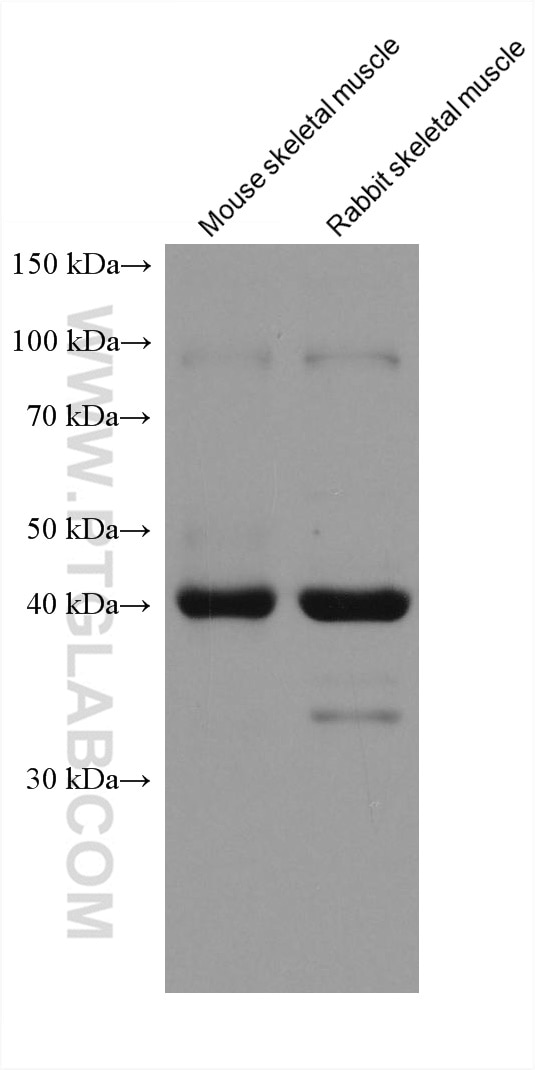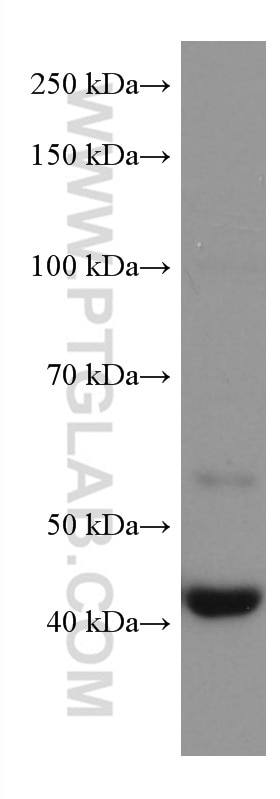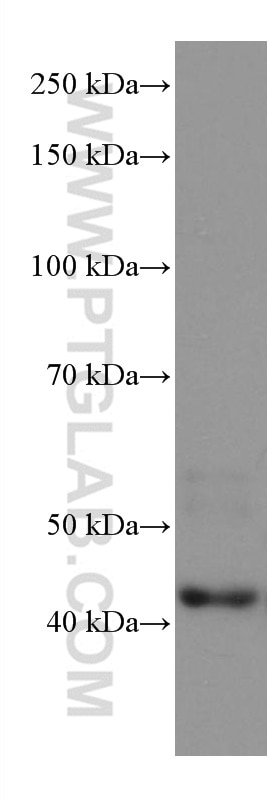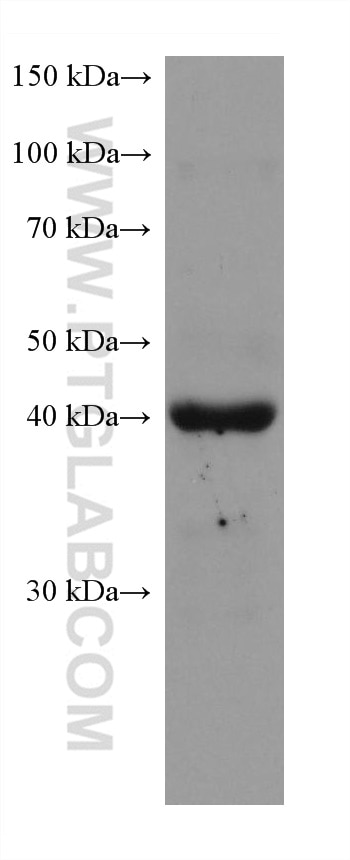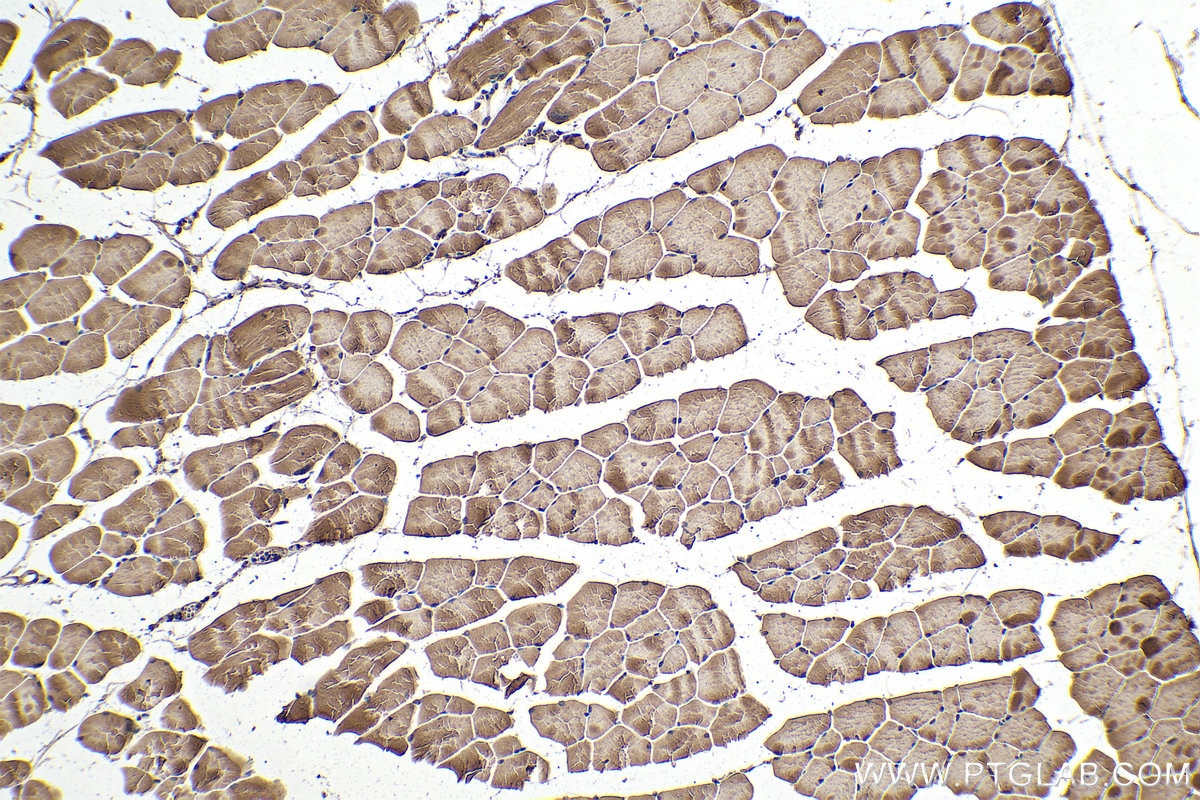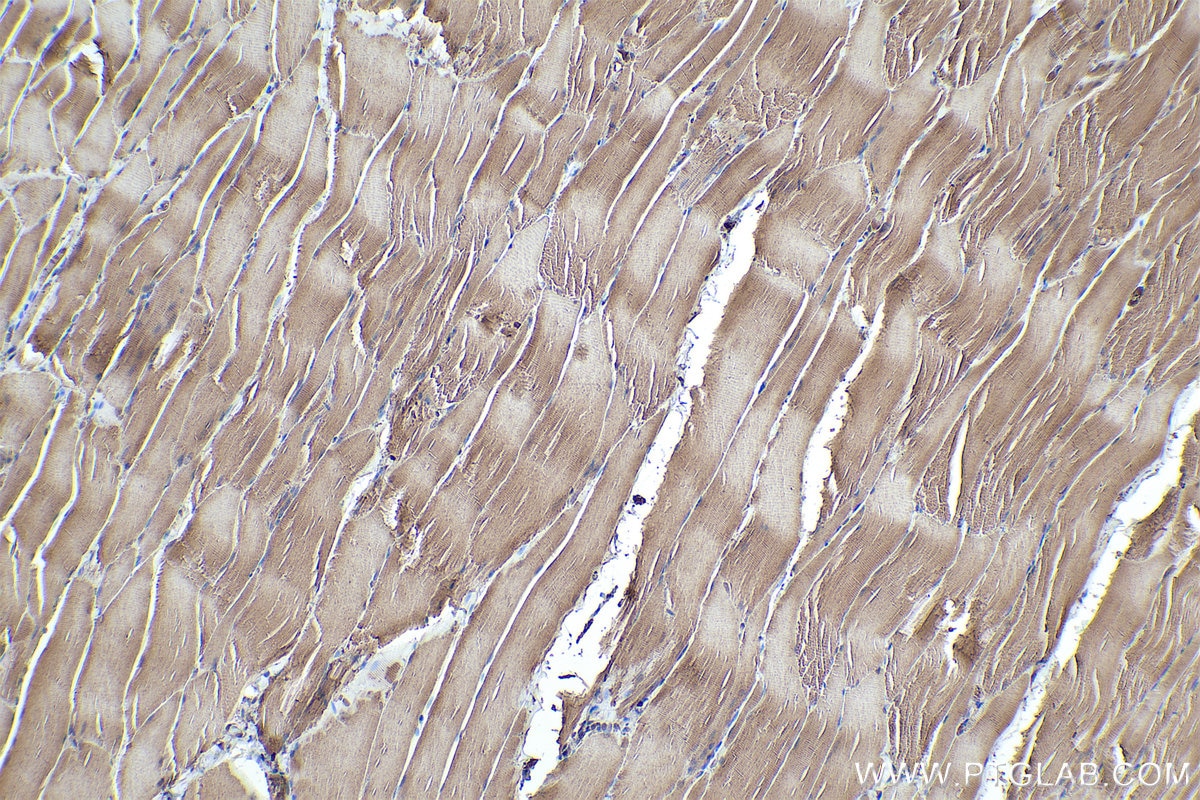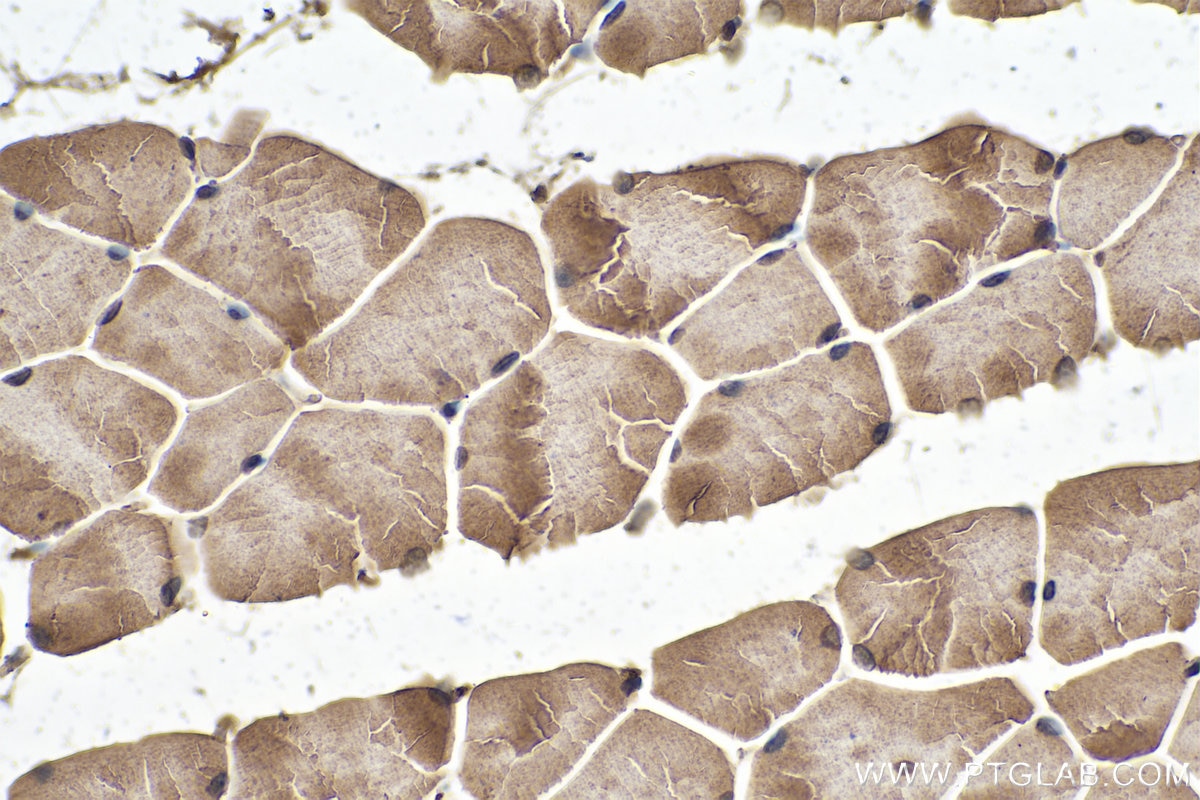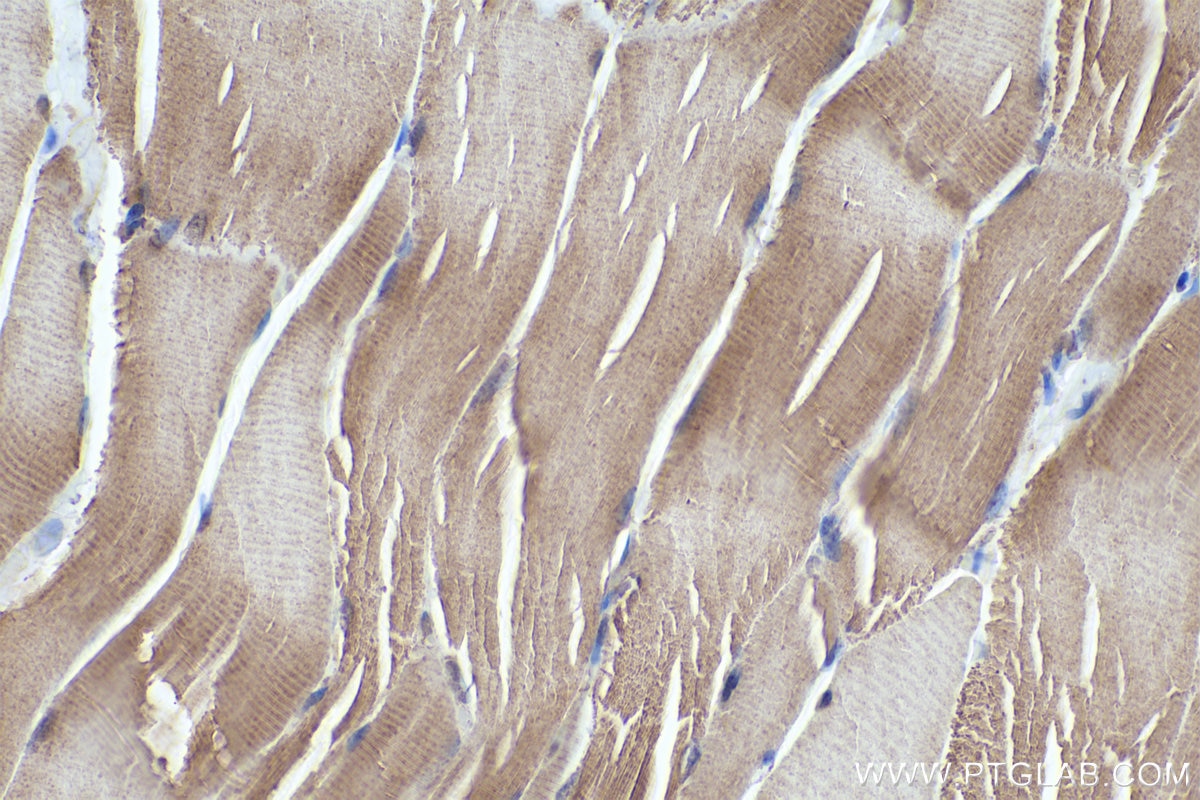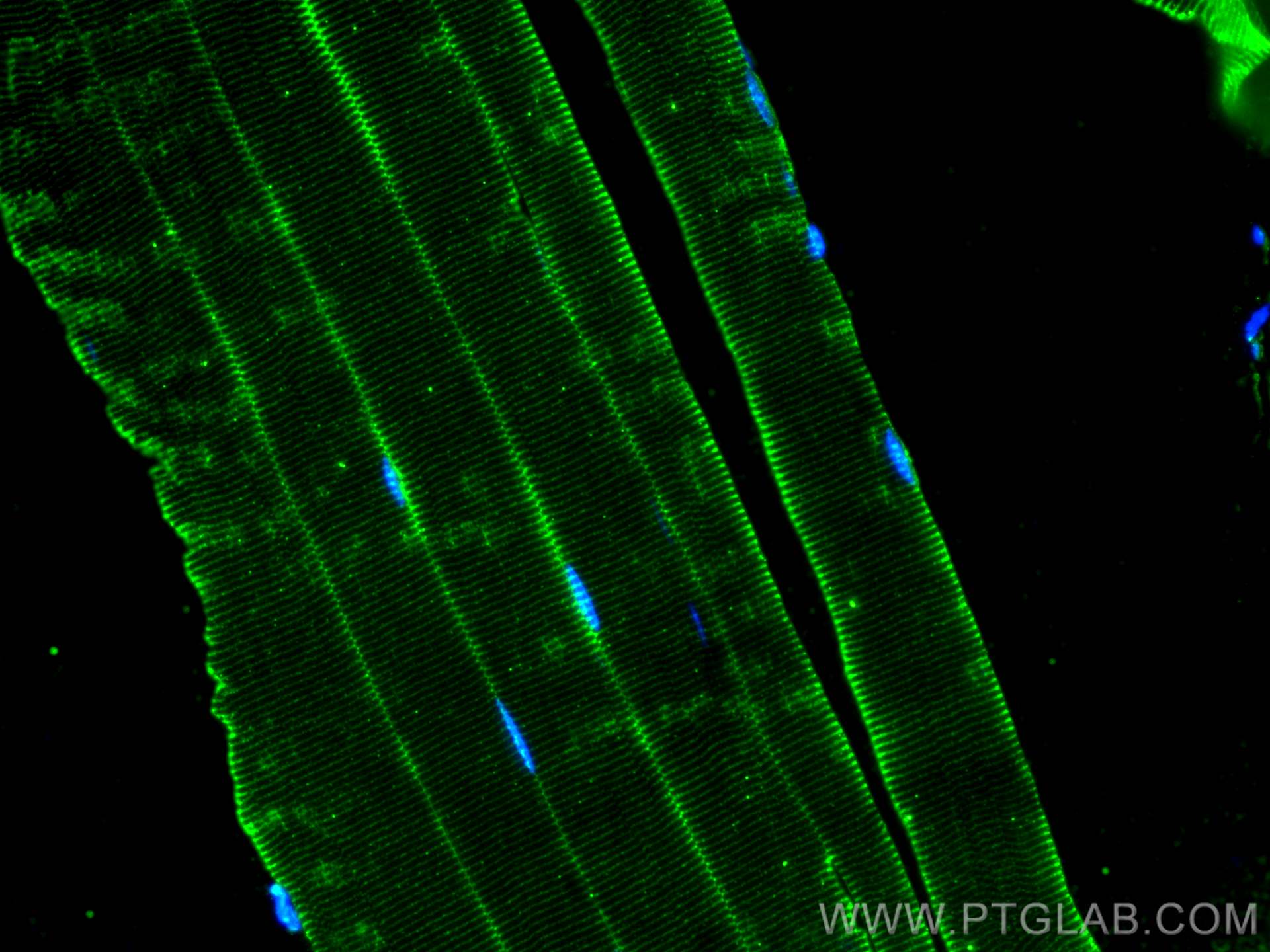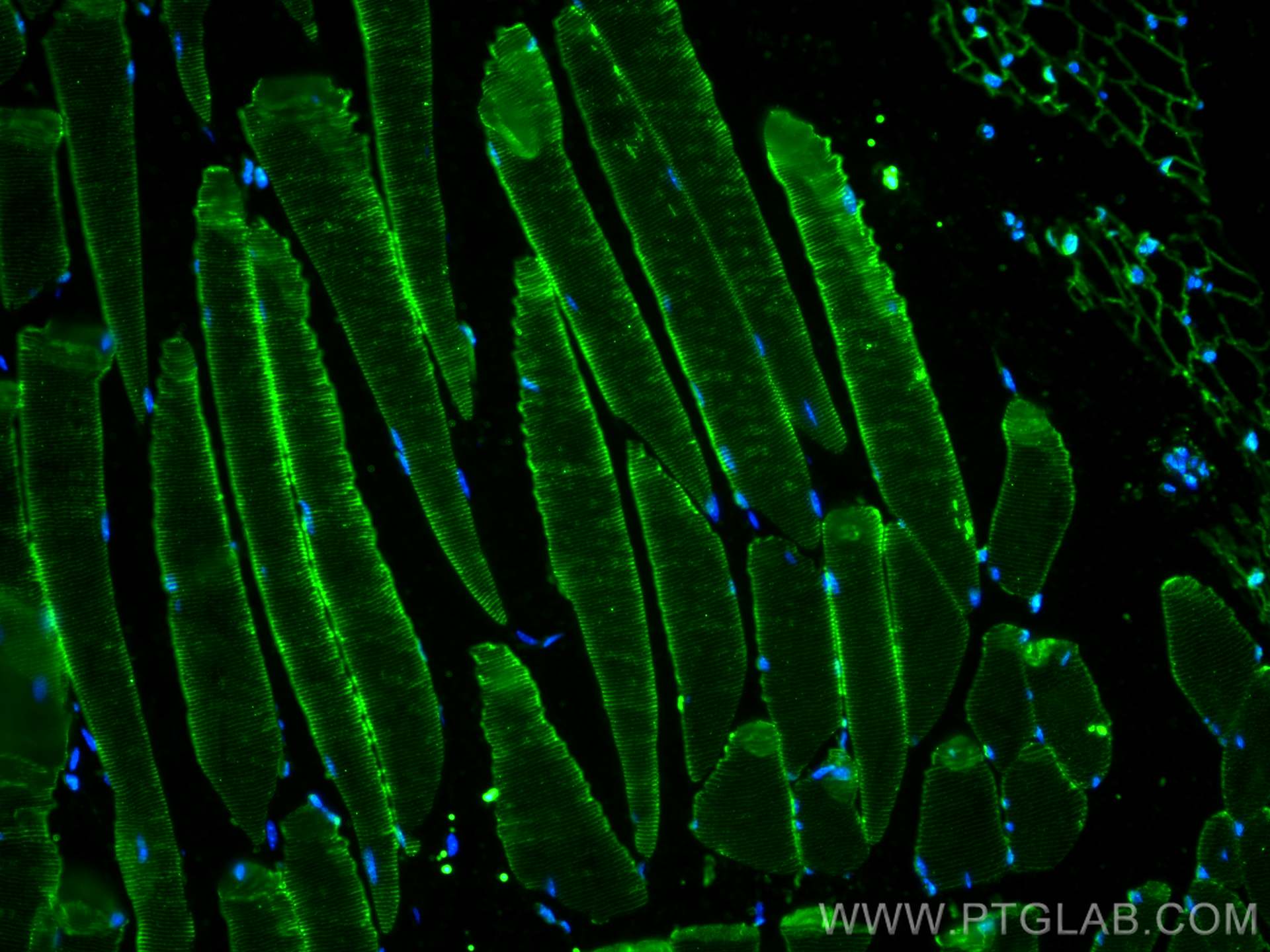Anticorps Monoclonal anti-FBXO32
FBXO32 Monoclonal Antibody for WB, IHC, IF-P, ELISA
Hôte / Isotype
Mouse / IgG2b
Réactivité testée
Humain, porc, rat, souris et plus (1)
Applications
WB, IHC, IF-P, IP, ELISA
Conjugaison
Non conjugué
CloneNo.
3C2G3
N° de cat : 67172-1-Ig
Synonymes
Galerie de données de validation
Applications testées
| Résultats positifs en WB | tissu de muscle squelettique de souris, tissu cardiaque de porc, tissu cardiaque humain, tissu de muscle squelettique de lapin, tissu de muscle squelettique de porc |
| Résultats positifs en IHC | tissu de muscle squelettique de souris, tissu de muscle squelettique de rat il est suggéré de démasquer l'antigène avec un tampon de TE buffer pH 9.0; (*) À défaut, 'le démasquage de l'antigène peut être 'effectué avec un tampon citrate pH 6,0. |
| Résultats positifs en IF-P | tissu de muscle squelettique de souris, |
Dilution recommandée
| Application | Dilution |
|---|---|
| Western Blot (WB) | WB : 1:10000-1:50000 |
| Immunohistochimie (IHC) | IHC : 1:2000-1:8000 |
| Immunofluorescence (IF)-P | IF-P : 1:50-1:500 |
| It is recommended that this reagent should be titrated in each testing system to obtain optimal results. | |
| Sample-dependent, check data in validation data gallery | |
Applications publiées
| WB | See 36 publications below |
| IHC | See 17 publications below |
| IF | See 2 publications below |
| IP | See 1 publications below |
Informations sur le produit
67172-1-Ig cible FBXO32 dans les applications de WB, IHC, IF-P, IP, ELISA et montre une réactivité avec des échantillons Humain, porc, rat, souris
| Réactivité | Humain, porc, rat, souris |
| Réactivité citée | rat, canin, Humain, porc, souris |
| Hôte / Isotype | Mouse / IgG2b |
| Clonalité | Monoclonal |
| Type | Anticorps |
| Immunogène | FBXO32 Protéine recombinante Ag25247 |
| Nom complet | F-box protein 32 |
| Masse moléculaire calculée | 355 aa, 42 kDa |
| Poids moléculaire observé | 42 kDa |
| Numéro d’acquisition GenBank | BC024030 |
| Symbole du gène | FBXO32 |
| Identification du gène (NCBI) | 114907 |
| Conjugaison | Non conjugué |
| Forme | Liquide |
| Méthode de purification | Purification par protéine A |
| Tampon de stockage | PBS with 0.02% sodium azide and 50% glycerol |
| Conditions de stockage | Stocker à -20°C. Stable pendant un an après l'expédition. L'aliquotage n'est pas nécessaire pour le stockage à -20oC Les 20ul contiennent 0,1% de BSA. |
Informations générales
FBXO32 (F box only protein 32), also known as Atrogin 1 or MAFbx, is a member of the F-box protein family which is characterized by an approximately 40 amino acid motif F-box. This protein is an E3 ubiquitin ligase that is markedly up-regulated in muscle atrophy. FBXO32 is thus a potential drug target for the treatment of muscle atrophy. Some data support that FBXO32 may play an important role in tumorigenesis. Recent study reveal that FBXO32 targets the oncogenic protein c-Myc for ubiquitination and degradation through the proteasome pathway.
Protocole
| Product Specific Protocols | |
|---|---|
| WB protocol for FBXO32 antibody 67172-1-Ig | Download protocol |
| IHC protocol for FBXO32 antibody 67172-1-Ig | Download protocol |
| IF protocol for FBXO32 antibody 67172-1-Ig | Download protocol |
| Standard Protocols | |
|---|---|
| Click here to view our Standard Protocols |
Publications
| Species | Application | Title |
|---|---|---|
Nat Commun F-box protein FBXO32 ubiquitinates and stabilizes D-type cyclins to drive cancer progression | ||
Cell Death Dis FBXO32-mediated degradation of PTEN promotes lung adenocarcinoma progression | ||
Antioxidants (Basel) 5'-Cytimidine Monophosphate Ameliorates H2O2-Induced Muscular Atrophy in C2C12 Myotubes by Activating IRS-1/Akt/S6K Pathway | ||
Cell Biol Toxicol Statins induce skeletal muscle atrophy via GGPP depletion-dependent myostatin overexpression in skeletal muscle and brown adipose tissue. | ||
J Anim Sci Biotechnol Protective effects of taurine against muscle damage induced by diquat in 35 days weaned piglets. | ||
Life Sci N-acetylcysteine alleviates oxidative stress and apoptosis and prevents skeletal muscle atrophy in type 1 diabetes mellitus through the NRF2/HO-1 pathway |
